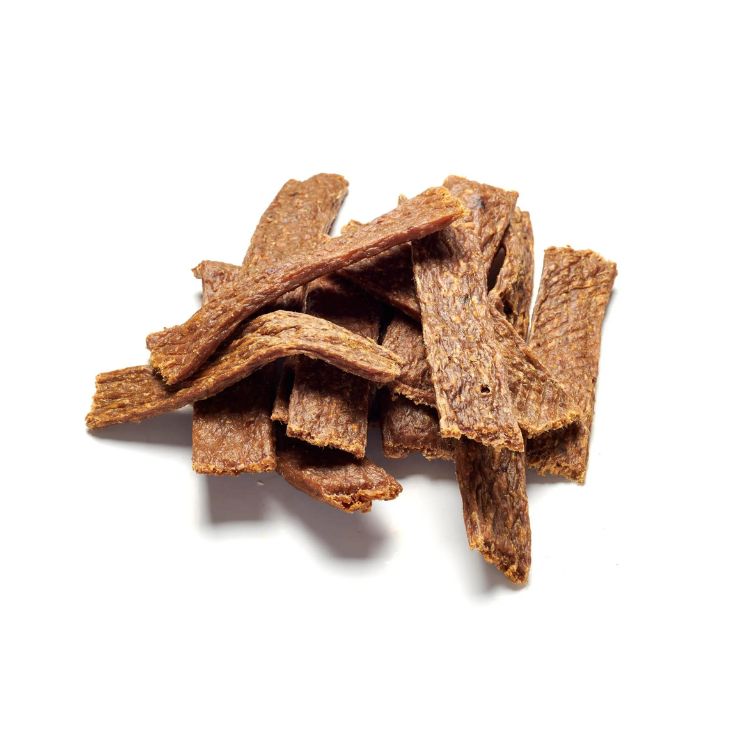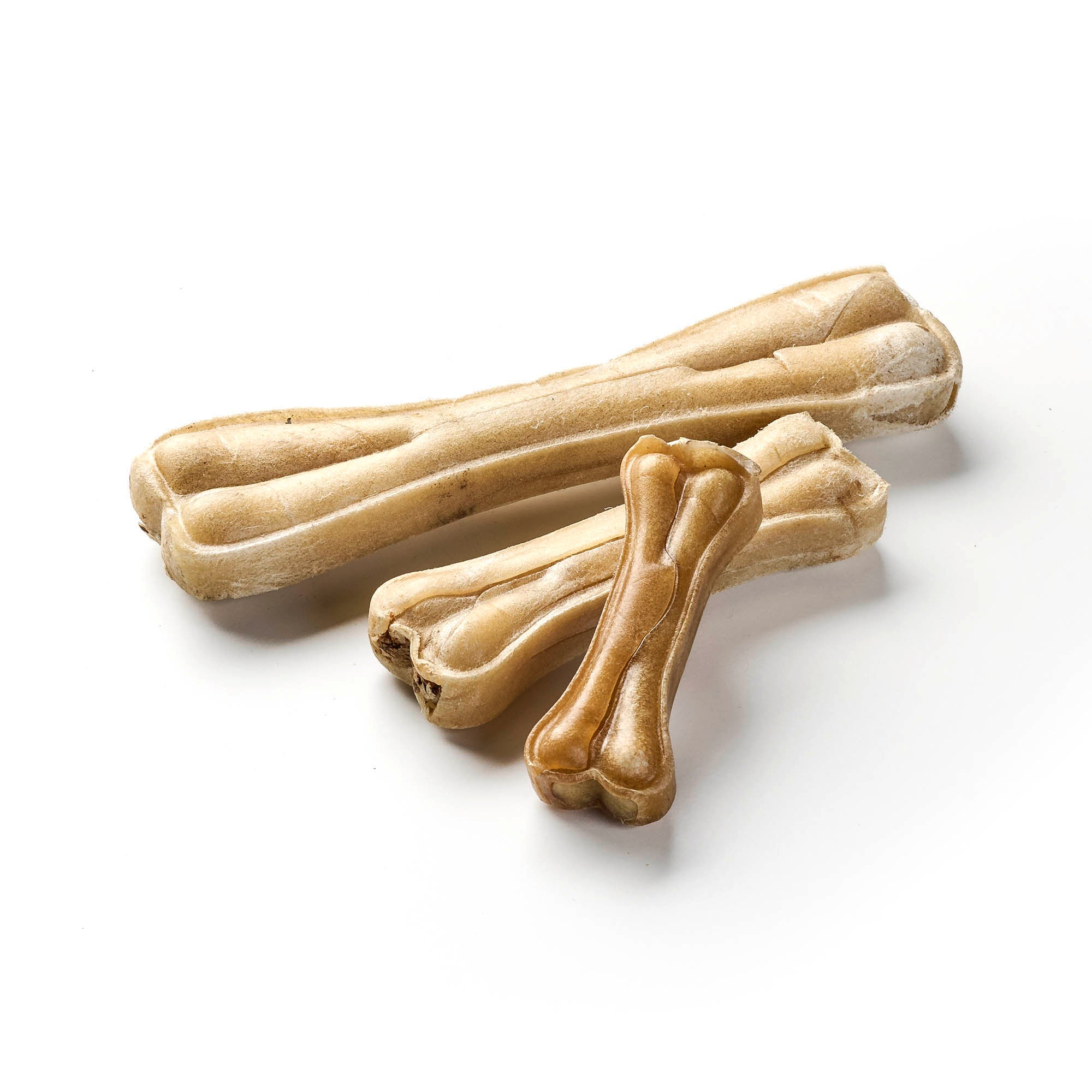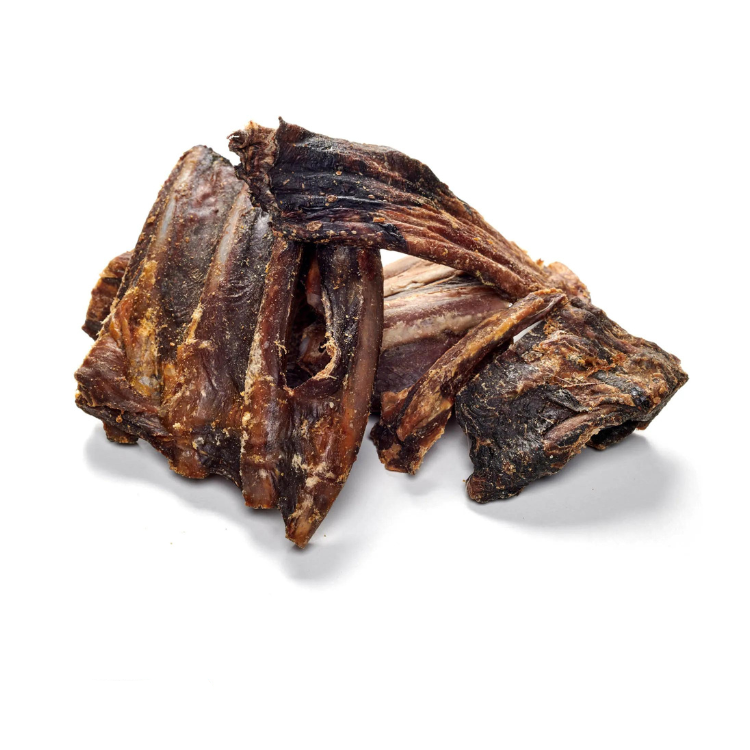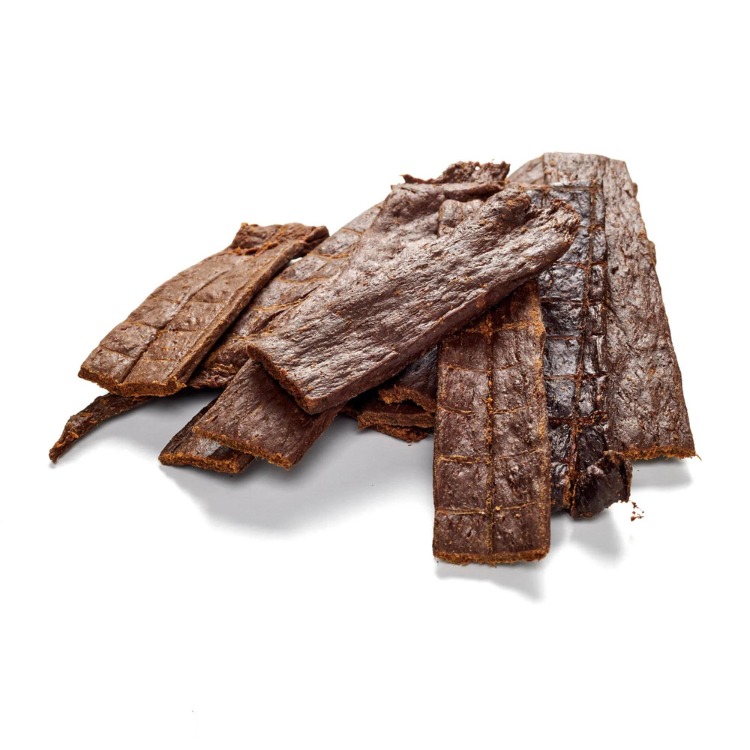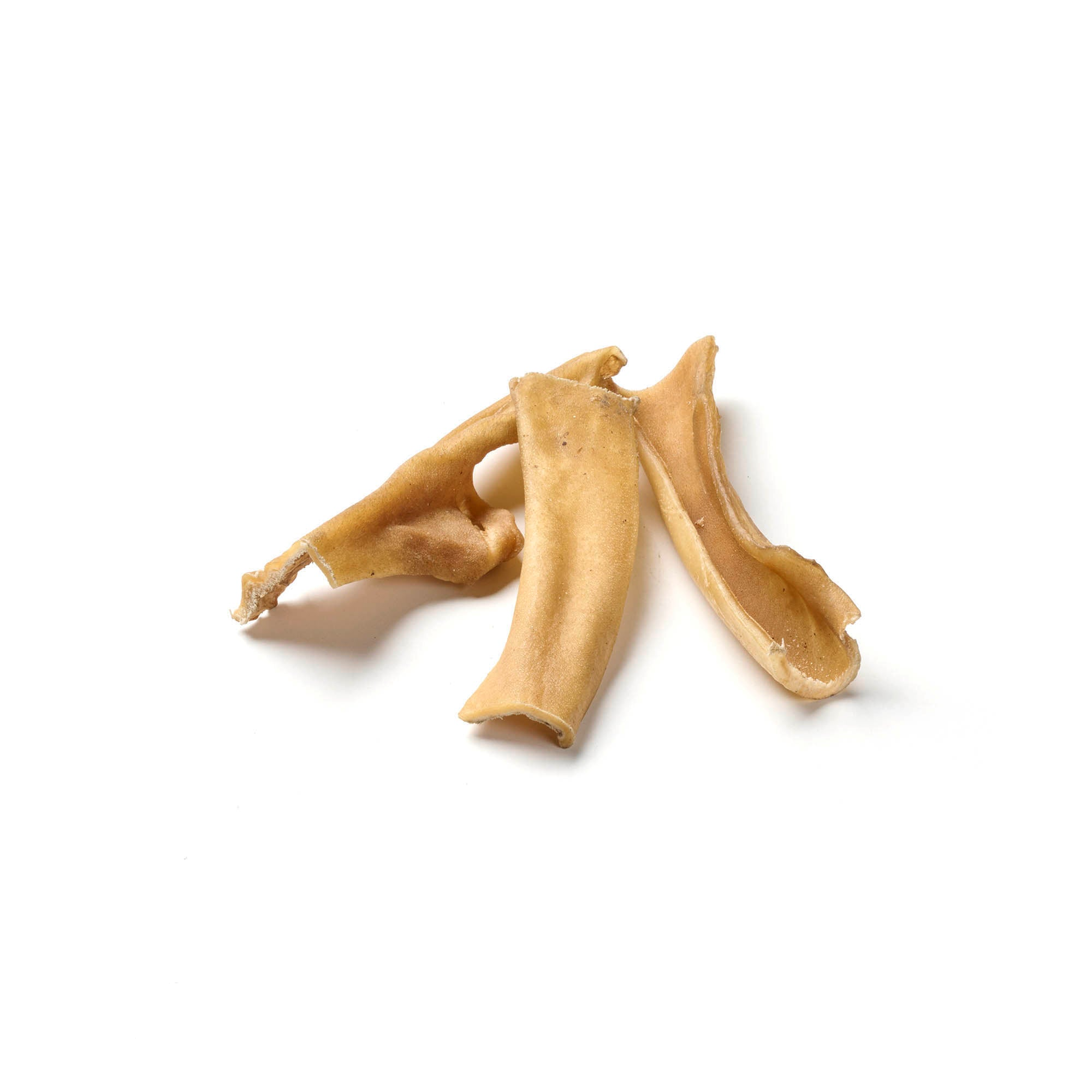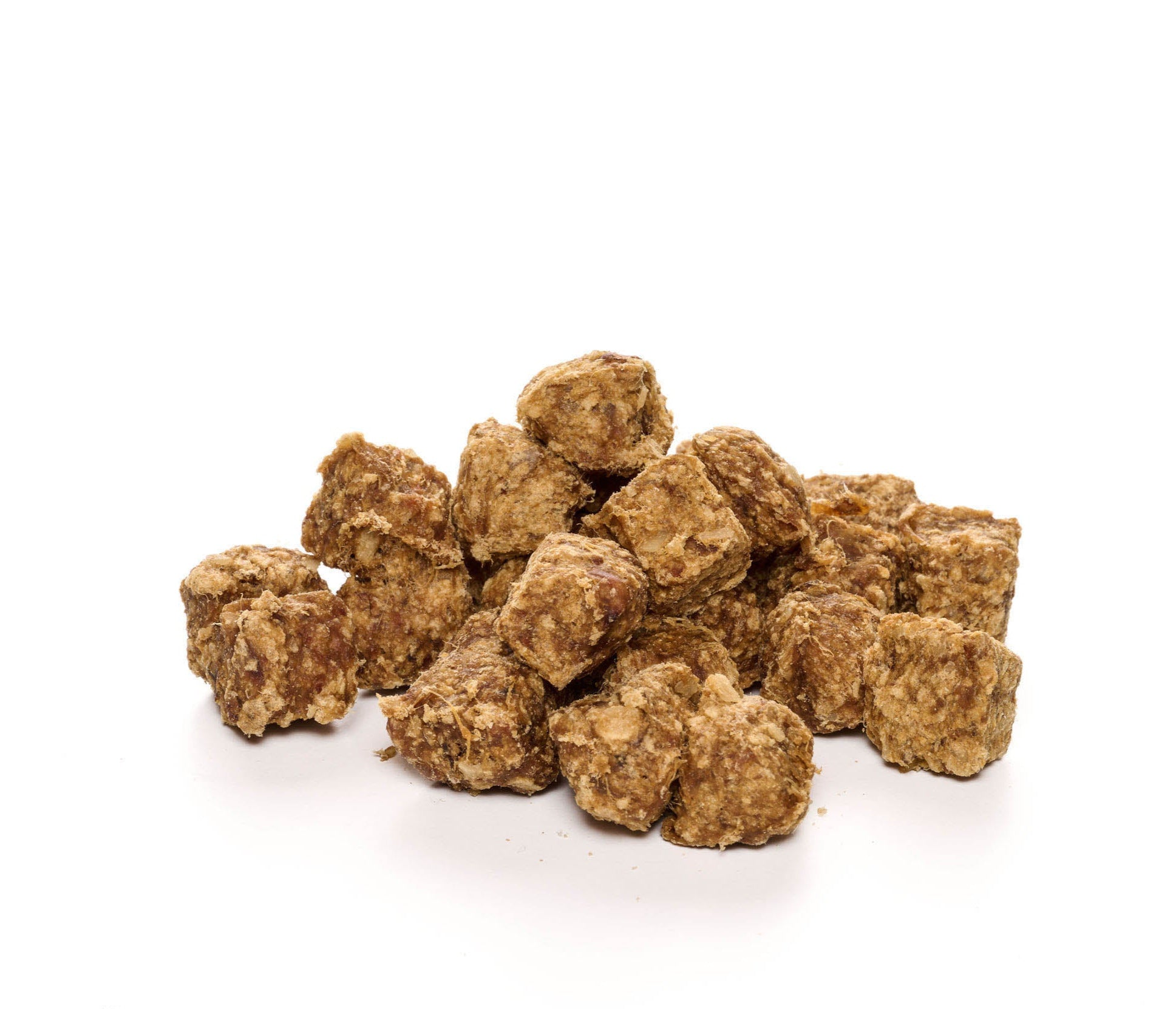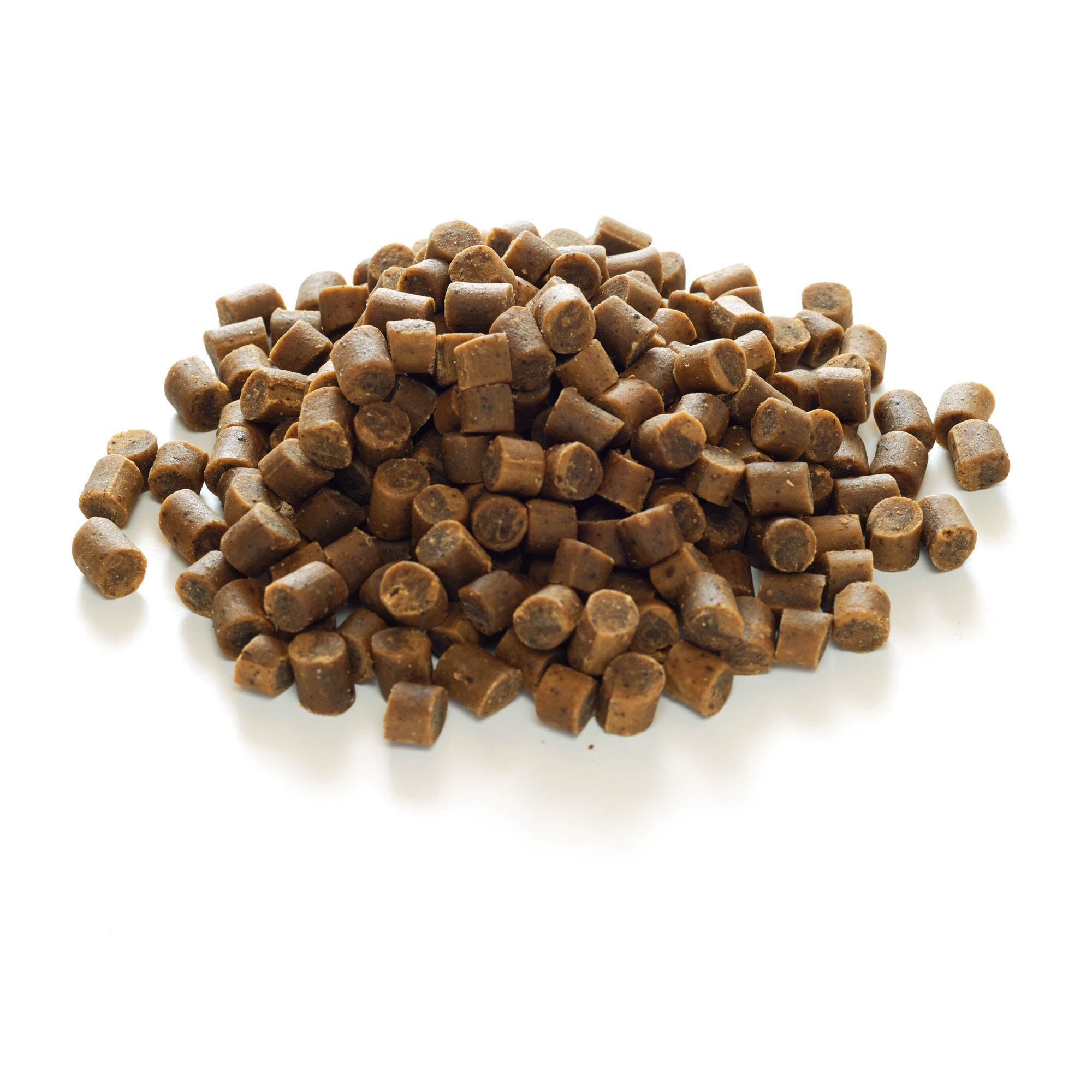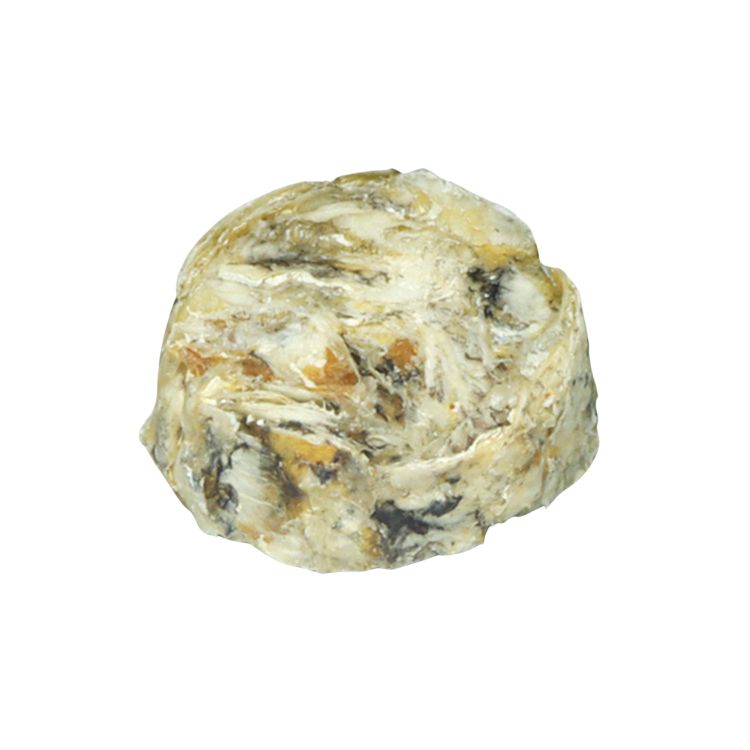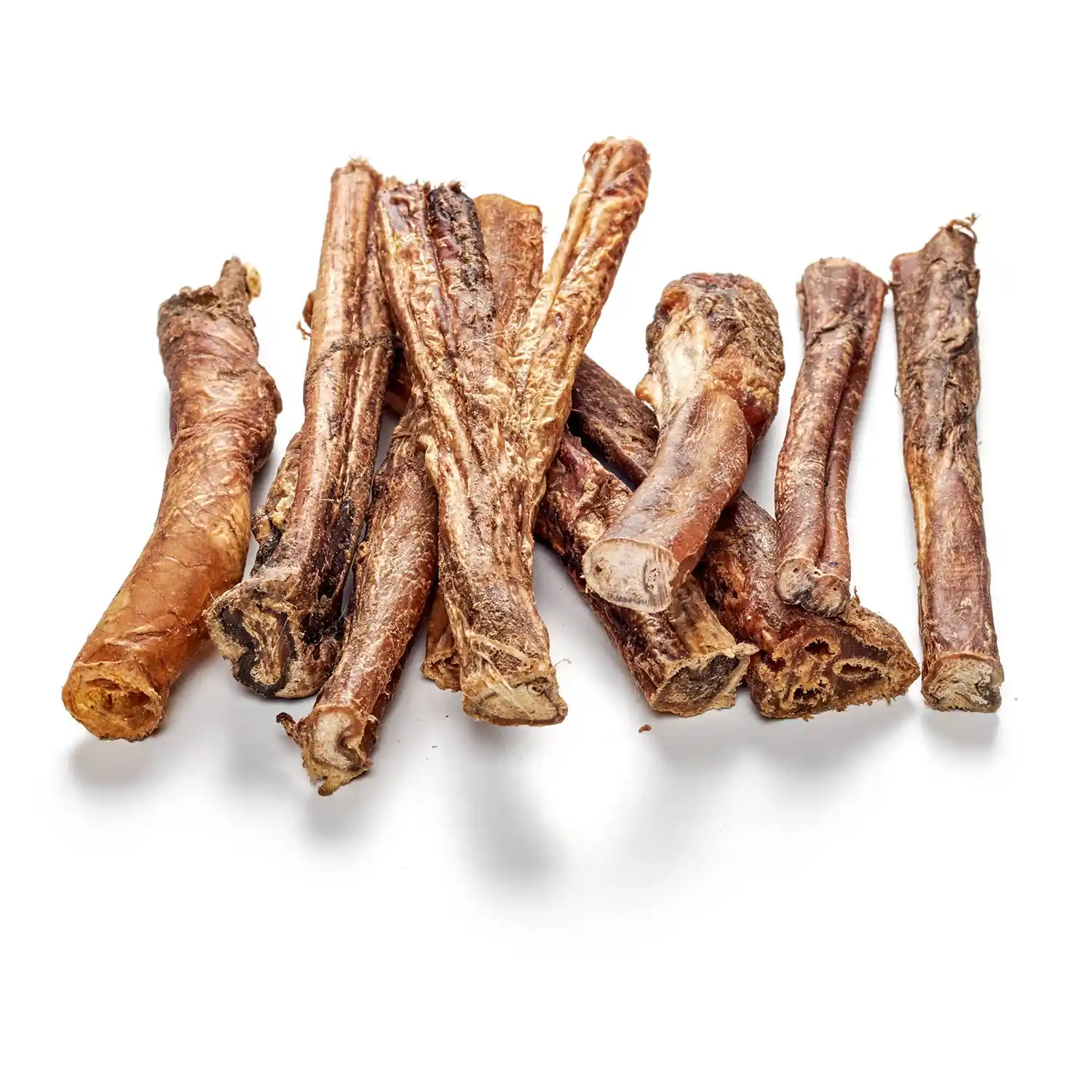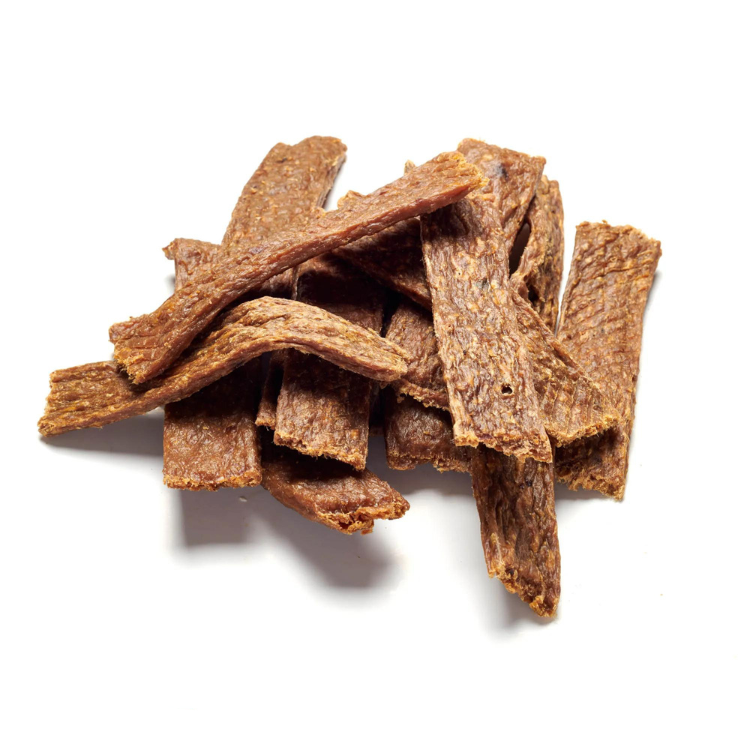
Guard dogs – still relevant?
Share
Guard dogs have played an important role in society for centuries and are the epitome of protection and security for many people. Our ancestors already trusted the sharp senses and strong protective instincts of these loyal animals to protect their belongings from intruders. But in a world that is increasingly characterized by technological innovations and digital security systems, the question arises: Are guard dogs still up to date today? Their tasks and areas of use have changed significantly over time, and the expectations placed on them are more diverse than ever.
Content: Guard dogs – still relevant?
- Guard Dogs Through the Ages
- What tasks do guard dogs perform today?
- Guard dogs and their characteristics
- Watchdogs vs. Technological Solutions
- Legal and social challenges
- Guard dogs and everyday life
- Watchdogs in a Changing World
- Health and Prevention in Guard Dogs
- Conclusion: Are guard dogs still relevant?
Bring joy to your dog's day with our treats!
Guard Dogs Through the Ages
Guard dogs are deeply rooted in history and have evolved over thousands of years. There is a lot to discover from their early roles to the present day.
The Beginnings of the Watchdogs
Guard dogs were already used in ancient times to protect property and wealth. Archaeological finds show that the ancient Romans, Greeks and Egyptians kept dogs as protectors. These early guard dogs were often larger and stronger, bred to ward off intruders and detect danger. Guard dogs also played a central role in Asian cultures such as China and Japan, whether protecting temples or defending royal estates. The instincts inherent in these dogs laid the foundation for the development of modern guard dogs.
Guard Dogs in the Middle Ages
During the Middle Ages, guard dogs became increasingly important. They were used in castles, palaces and extensive estates to protect the property of the nobility. Large and powerful breeds such as the Mastiff , the ancestors of today's sheepdog, patrolled tirelessly along the walls. Their loud barking warned of attackers, and their courageous nature made them an indispensable part of medieval defense. Peasants also used guard dogs to protect livestock and deter thieves. This era shaped the idea of the dog as a loyal guardian who would bravely risk his life for that of his owner.
Guard dogs in the modern world
With industrialization, the role of guard dogs changed drastically. Cities grew larger and security requirements shifted. Today, guard dogs are no longer just guardians of property and assets, but also loyal companions in everyday family life. While alarm systems and digital surveillance have supplemented the classic guard dog in many areas, its role as a reliable protector remains. Guard dogs are still in demand, especially on rural properties or in residential areas. Their instinctive sense of danger and their ability to recognize people and distinguish good intentions from bad ones make them still valuable.
Discover the range of dog snacks in our store!
What tasks do guard dogs perform today?
Guard dogs have adapted to the needs of modern society. Their duties extend far beyond simply guarding property and include a variety of roles.
protection of land and houses
Guard dogs are still unbeatable when it comes to securing properties and homes. Their keen hearing and keen sense of smell enable them to detect threats early and warn their owners. While alarm systems can often be bypassed by burglars, the guard dog remains incorruptible and efficient. They also act as a kind of deterrent: the mere presence of a guard dog can keep potential intruders away. Together with modern security systems, guard dogs offer a double barrier of protection that works on both a technical and instinctive level.
guard dogs at work
In addition to protecting private homes, guard dogs now work in many professional areas. Police dogs patrol the streets, track down criminals and help fight crime. Military dogs are used on special missions to detect explosives or monitor enemy movements. Guard dogs are also used in security services: they guard company premises, warehouses and event sites. Their loyalty and trainability make them valuable team members. A well-trained guard dog can react quickly in dangerous situations and protect both people and material possessions.
Emotional Support and Service Animals
Surprisingly, guard dogs are also often emotional companions. Their protective instincts and close bond with their owners create a trusting environment that conveys security. Guard dogs develop an intense bond with their families and recognize when someone needs comfort or protection. In some cases, they are even used as therapy dogs , as their calmness and strength can help anxious or traumatized people. The combination of alertness and emotional closeness makes them unique pets that offer more than just protection - they become true family members.
Guard dogs and their characteristics
The characteristics of a guard dog make them the ideal protector. But not every breed is the same, and there are many factors that determine a dog's suitability.
Popular guard dog breeds
Some dog breeds have proven to be particularly effective guard dogs. The German Shepherd is known for its intelligence and versatility, while the Rottweiler impresses with its strength and fearlessness. Dobermans are fast, alert and loyal, making them ideal companions for guarding duties. The Bullmastiff and Belgian Malinois are also excellent watchdogs that protect their owners. Each breed comes with advantages and disadvantages: while some dogs are easier to train, others require a higher level of experience and commitment. Choosing the right breed depends on individual needs and the environment in which the dog will live.
Guarding instinct: innate or learnable?
The guarding instinct is innate in most guard dogs, but training plays a crucial role in controlling and encouraging this instinct. Some dogs have a naturally stronger protective drive, while others require targeted training to reach their full potential. Socialization during puppyhood is crucial so that the dog learns to differentiate between everyday situations and real threats. Interaction with different people and animals also helps the dog regulate its behavior. A balanced training plan can sharpen the dog's natural instinct and ensure that it responds effectively in critical situations.
The character of a typical guard dog
Guard dogs are known for their loyalty, courage and alertness. They have a strong need to protect their family and are often suspicious of strangers. Yet at the same time, they are loving companions who form a deep bond with their owners. Their intelligence makes them easy to train, but also demanding: they need mental and physical stimulation to be happy and well-balanced. A typical guard dog is territorial and takes their role as protector seriously, but with the right training, they can also be a gentle and loving friend.
Chewing items as an important part of a guard dog's everyday life
Chews play a big role in a guard dog's everyday life. Not only do they provide a welcome activity, they also help to reduce stress. The intensive chewing calms a dog's nerves, which is especially helpful for dogs with a strong protective instinct. In addition, chews promote dental health by reducing tartar and massaging the gums.
Suitable chews for guard dogs:
- Tough Bully Sticks: These durable chews are ideal for large, powerful dogs as they allow for long chewing sessions. They are tough enough to exercise the chewing muscles while offering a natural taste.
- Buffalo hide bones: They promote dental health by rubbing away tartar and massaging the gums. In addition, their firm structure provides long-lasting chewing pleasure, which is particularly important for energetic guard dogs.
- Beef scalp pieces: These extremely firm chews are perfect for sustained chewing and keep the dog occupied for a longer period of time. They are a good choice to satisfy the natural need to chew and clean the teeth at the same time.
- Antler Chunks: Rich in natural minerals, antler chunks are extremely durable and an excellent choice for strong jaws. They won't splinter and provide a safe, nutrient-rich chew option for guard dogs.
- Beef ear mussels: These chews provide valuable nutrients such as collagen and are tasty and easy to digest. They are a good alternative to conventional chews and offer natural chewing fun.
High quality dog snacks to pamper your dog, now available!
Watchdogs vs. Technological Solutions
The question of whether guard dogs can be replaced by technological solutions is legitimate. This section highlights the differences and similarities.
Modern security systems in comparison
Technological security measures such as surveillance cameras and alarm systems have made great strides in recent years. These systems offer complete protection and are often linked to apps that allow you to monitor your home from anywhere. But even the most modern technology has its limits. Guard dogs have an inimitable instinct and react immediately to threats without having to be programmed. A dog can scare off intruders with its barking and has the ability to distinguish between harmless and dangerous situations. Both systems complement each other well, but a dog brings a personal protection component that technology cannot replace.
Costs and Effort: Dog vs. Technology
Keeping a guard dog involves significant costs and commitments. Food, vet visits, training and care add up over the years. The time a dog owner has to spend on training and entertaining their pet should not be underestimated either. Technological solutions such as cameras and alarm systems require an initial investment and occasional maintenance, but are less time-consuming. For many people, the choice between a dog and technology is a matter of life circumstances. While technology is more convenient, a dog offers a feeling of closeness and trust that no machine can replace.
Can guard dogs replace technology?
In certain situations, guard dogs are irreplaceable. They can sense moods, respond to unusual noises, and have a sense of danger that technology cannot replicate. In the modern world, however, the two security approaches often complement each other. Technology can help identify potential intruders, while the dog serves as a deterrent and protective presence. Guard dogs are particularly effective in areas where a quick reaction time is critical, or when the owner wants to rely on the dog's instincts. The combination of dog and technology provides optimal protection based on both instinct and data.
Legal and social challenges
Keeping guard dogs is not only a personal decision, but also a social responsibility. There are many legal requirements that must be observed.
Legal requirements for keeping guard dogs
Keeping guard dogs is subject to strict legal requirements in many countries. In urban areas, there are often restrictions that regulate the use of guard dogs to ensure the safety of the neighborhood. Owners must adhere to leash requirements, muzzle requirements, and special liability regulations depending on how aggressive or protective the breed is considered. There are also regulations to ensure that the dog is kept in a species-appropriate manner to avoid behavioral problems. In addition, liability insurance is mandatory in many cases to cover potential damage. Responsible owners should familiarize themselves with these laws and train their dog accordingly.
Challenges for owners in residential areas
Living with a guard dog in an urban environment can be challenging. Noise pollution from frequent barking can quickly lead to conflict with neighbors. Some people feel uncomfortable around a large, protective dog, and it can be difficult to let the dog run free in parks or public places. Good training and socialization are therefore essential to ensure peaceful coexistence. In urban residential areas, it is advisable to give the dog plenty of exercise and activity to burn off excess energy. Some owners may also find it helpful to consider alternatives, such as using technology to support the guard function.
Guard dogs and everyday life
Integrating a guard dog into everyday life can be a challenge, especially in families with children. Proper care and activity are particularly important here.
The proper care and keeping of a guard dog
Caring for a guard dog goes beyond simply feeding them. These dogs need regular exercise and training to keep them physically and mentally stimulated. A balanced diet is also important to promote health and well-being. Guard dogs need to live in an environment that offers them enough space and the opportunity to exercise their natural protective instincts. A structured routine combined with obedience training can help prevent behavioral problems. Dental health and regular vet visits are also important to keep the dog fit for a long time.
Guard dogs and family life
Guard dogs can be loving family members who form close bonds with all members of the household. However, it is important to take safety precautions, especially in households with young children. Guard dogs must learn when it is appropriate to show their protective instincts and when they can be relaxed. Clear rules and good communication within the family are crucial to avoid misunderstandings. If there are children in the household, they should also learn how to interact with the dog safely and respectfully. The guard dog will then become an alert but friendly companion.
Guard Dogs and Children: Safety and Coexistence
The interaction between guard dogs and children can be wonderful, but also challenging. Children must learn early on that a guard dog is not a toy and should always be treated with respect. Careful socialization of the dog is crucial to enable harmonious coexistence. The dog should be used to the fact that children can be loud and boisterous without activating its protective behavior. Parents can ensure that the dog remains relaxed with simple rules and exercises. Chews are a good way to keep the dog busy and give it the opportunity to relax.
The Role of Chews in the Occupation of Guard Dogs
Guard dogs often have high energy levels and need to be kept busy so that they are not under-challenged. Chews are a great way to keep your dog physically and mentally busy. They satisfy the natural chewing instinct and ensure that the dog is calmer and more balanced. Chews can be a welcome distraction, especially for dogs that regularly have to suppress their protective instincts. There are special chews that are tailored to the needs of large and strong breeds and at the same time promote dental health. This allows the guard dog to channel its energy into a positive activity.
Useful chews for guard dogs:
- Chewing sticks made from deer skin: These sticks are particularly robust and offer long-lasting chewing fun that strengthens the chewing muscles. They are also high in protein and a good choice for dogs with allergies.
- Horsehide Chew Strips: A hypoallergenic option for sensitive dogs that is also very tough and durable. These strips offer intense chewing and are good for dental health.
Watchdogs in a Changing World
The modern world is changing rapidly, and the role of guard dogs is not unaffected. What might the future hold for these loyal protectors?
The Future of Guard Dogs: Trends and Developments
The role of guard dogs will continue to evolve in the coming years. As digitalization advances, their roles may become more specialized. Some trends suggest that guard dogs may be increasingly used in areas such as therapy and emotional support. At the same time, their role as a security force remains important, especially in rural areas. Breeding methods are improving to create healthier and more balanced dogs that are suitable as both companions and protectors. The requirements for guard dogs are becoming more varied, and it remains exciting to see how this development will continue.
A Look at Animal Psychology
Modern societies influence the behavior of guard dogs in many ways. The changed living conditions, the close contact with people and the new areas of responsibility have an impact on animal psychology. Dogs that were once specialized exclusively in guard and protection tasks now have to be flexible and adaptable. The pressure to be socially compatible can lead to stress, which manifests itself in behavioral problems. It is important to understand the well-being and needs of dogs in order to support them in an ever-changing world. Breeding and training play a crucial role here in promoting balanced and healthy animals.
Health and Prevention in Guard Dogs
Health and prevention are crucial to the longevity and performance of guard dogs. This section explains what owners need to pay attention to.
The most common health problems in guard dogs
Guard dogs are prone to certain health problems, mainly due to their size and the stresses of their protective duties. Joint problems such as hip dysplasia are common, especially in large breeds. Cardiovascular disease and obesity can also be a problem if the dog does not get enough exercise. Stress-related ailments such as skin problems or gastrointestinal disorders can also occur, especially if the dog is constantly under stress. Good prevention is therefore essential to detect and treat these problems early.
Preventive measures for a long, healthy dog life
The health of a guard dog depends on a variety of preventative measures. Regular visits to the vet are crucial for detecting diseases early. A balanced diet that covers the high energy requirements of a guard dog also contributes to health. Lots of exercise and mental stimulation help to avoid obesity and stress-related illnesses. Regular check-ups, such as hip x-rays for larger breeds, are also part of this. Comprehensive preventative care can improve the dog's quality of life and maintain its performance for a long time.
The Role of Chews in Dental Health
Chews play an important role in the dental health of guard dogs. They help to wear away tartar and promote healthy gums, which leads to better oral hygiene in the long term. They can also prevent dental problems that often occur in guard dogs. Regularly giving chews can also help to strengthen the jaw and keep the chewing muscles fit. Owners should make sure to choose high-quality chews that do not contain any harmful additives. The combination of chews and regular dental care at the vet ensures that the guard dog stays healthy and vital.
Natural chews for dental health:
- Beef Ears: Rich in natural collagen, dried beef ears help reduce tartar while massaging the gums. They are easily digestible and a great choice for healthy teeth.
- Lambskin Strips: These chews are a gentler alternative for dogs with more sensitive teeth. They still provide good dental cleaning and are an ideal choice for dogs with allergies or intolerances.
- Rabbit ears with fur: Chewing on rabbit ears helps clean teeth and provides additional fiber. The fur acts like a natural toothbrush and contributes to oral hygiene.
Conclusion: Are guard dogs still relevant?
Guard dogs remain an indispensable part of the security landscape, but they also have an emotional significance that goes far beyond their protective role. While technological solutions are a useful addition, the guard dog remains unique through its loyalty and instincts. The future of these loyal protectors will remain exciting, but their relevance is beyond question.
Delicious chews for your faithful companion now available!

